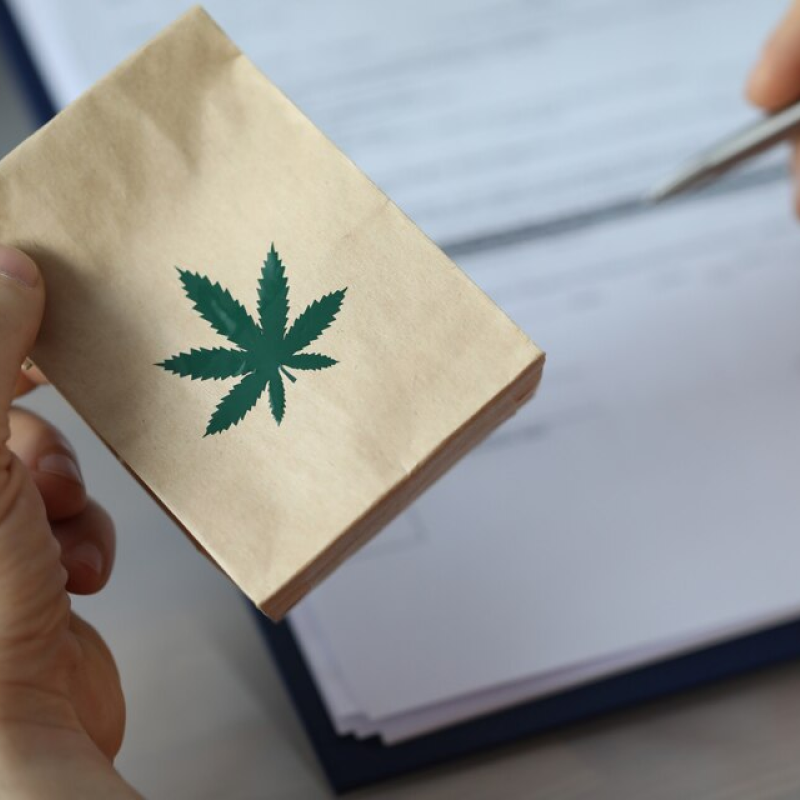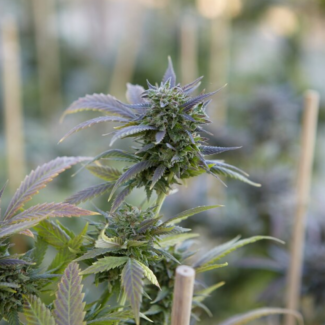Weed Tax Rates: A State-by-State Breakdown
This document provides a detailed overview of cannabis tax rates across various U.S. states, highlighting the different approaches taken by each state in taxing recreational cannabis. It discusses the implications of these taxes for both consumers and businesses, including the potential effects on market dynamics and sales. Additionally, it outlines the various methods of taxation, such as percentage-based, weight-based, and potency-based taxes, while also noting the unique tax structures implemented in specific states.

Article Summary
Taxes on cannabis are a hot topic. Government organizations love them, while many cannabis businesses and customers bemoan the additional financial burden. However you feel about them, it’s not possible to operate in a recreational cannabis market without dealing with weed taxes.
Understanding Cannabis Taxes
Since cannabis is still federally illegal, weed tax rates are set by the state, and approaches vary. Some states choose to add a flat tax rate to cannabis products, while others set rates based on weight, volume, or THC potency (which is called an excise tax.) Many states set a high tax rate on cannabis to try and take advantage of a green rush, which may cause lower sales as customers stick to black market cannabis that is untaxed.
There are three main ways that cannabis is taxed:
- Percentage of price. This is similar to a sales tax, but added specifically to weed products. Often referred to as tax on “retail sales.”
- Weight-based. The cultivator is responsible for weighing products and remitting the tax back to the state, but different parts of the plant are taxed differently.
- Potency-based.
While most taxes are added to the consumer at the register, some states opt to charge cannabis businesses an extra tax instead (or worse, additionally.) Oftentimes, these tax rates are added on top of a state’s existing sales tax, which can make cannabis products expensive to the end consumer.
What states do with the taxes varies as well. New York made headlines for adding an additional 4% municipal tax, with the revenue going directly back into the community where the cannabis was purchased.
This list addresses weed tax rates per state for recreational cannabis programs, not medical programs. Many medical programs are taxed at a lower rate, if at all. Washington DC is notable because cannabis is legal to “gift” but not sell — so businesses require a tax-free “gift” amount in exchange for cannabis. Virginia has established a 21% sales tax, but sales have not yet begun.
Weed Tax Rate Per State
The following is a list of weed tax rates per state. However, if you’d like to dive deeper into the legal landscape of each state, please see our comprehensive Cannabis Insurance by State Map.
Alaska
Business-facing: Alaska doesn’t have a flat tax rate, but rather taxes certain products individually:
- +$50 per ounce of mature flowers
- +$25 per ounce of immature flowers and “abnormal buds”
- +$15 per ounce on plant trims
- +$1 per clone
Consumer-facing: Alaska does not currently have tax on sales of cannabis product, but a 3% sales tax will be added to all transactions starting July 1, 2028.
Arizona
Consumer-facing: 16% tax on retail sales
California
Consumer-facing: 15% tax on retail “gross receipts.” Counties also have the option to add an excise tax (a potency tax) on products.
Colorado
Business-facing: 15% tax on wholesale average market rates
Consumer-facing: 15% tax on retail sales
Connecticut
Consumer-facing: 3% tax from the municipality on retail gross receipts and an excise tax levied on product types
- +$0.00625 per milligram of THC in flower/shake/trim/prerolls
- +$0.0275 per milligram of THC in edibles
- +$0.009 per milligram of THC in “other cannabis products” (such as concentrate and topicals.)
- +$1 per beverage
Delaware
Consumer-facing: 15% tax on retail sales
Illinois
Business-facing: 7% tax on wholesale gross receipts
Consumer-facing: tax depends on the potency of the product. Municipalities may add up to 3% and counties may add up to 3.75% additional tax
- 10% tax on retail sales for less than 35% THC
- 25% tax on retail sales for 35%+ THC
- 20% tax on retail sales of infused products
Maine
Business-facing: taxes are levied by the product type:
- +$335 per pound of cannabis flower
- +$94 per pound for cannabis trim
- +$35 per mature plant
- +$1.50 per immature plant or seedling
- +$0.30 per seed
Consumer-facing: 10% tax on retail sales
Maryland
Consumer-facing: 9% tax on retail sales
Massachusetts
Consumer-facing: 10.75% tax on retail sales, with the option for localities to add up to 3% additional.
Michigan
Consumer-facing: 10% tax on retail sales
Minnesota
Consumer-facing: 10% tax on gross retail receipts
Missouri
Consumer-facing: 6% tax on retail sales. Cities and counties may add an additional 3% tax each, for up to an additional 6% tax depending on where cannabis is purchased.
Montana
Consumer-facing: 20% tax on retail sales. Counties may add up to 3% additional tax.
Nevada
Business-facing: 15% tax on wholesale “fair market value”
Consumer-facing: 10% tax on retail sales
New Jersey
Business-facing: +$1.24 per ounce, capped at $10 per ounce. Municipalities may impose taxes on cannabis businesses by license type:
- 1% tax on wholesale receipts
- 2% tax on cultivator/ manufacturer/ retailer receipts, up to 7%
Consumer-facing: 6.625% tax rate on retail sales
New Mexico
Consumer-facing: 12% tax on retail sales, with an additional 1% increase until the rate reaches 18% in July 2030.
New York
Business-facing: 9% tax on wholesale sales and potency-based tax:
- +$0.50 cents per milligram of THC for flower,
- +$0.80 cents per milligram of THC for concentrates
- +$0.03 cents per milligram of THC for edibles
Consumer-facing: 9% tax on retail sales, with an additional 4% local tax for a total of 13%
Ohio
Consumer-facing: 10% tax on retail sales
Oklahoma
Consumer-facing: 7% tax on retail sales
Oregon
Consumer-facing: 17% tax on sales, with an optional 3% tax that can be added by local municipalities
Rhode Island
Consumer-facing: 10% tax on retail sales with an additional 3% local tax
Vermont
Consumer-facing: 14% tax on retail sales
Washington
Consumer-facing: 37% tax on retail sales
Navigating weed tax rates by state is just one of many tasks a cannabis business owner has to juggle. Tax compliance is an ongoing task, but it is necessary to protect your cannabis company.
Protecting your cannabis company can seem confusing; however, we’re a full-service insurance brokerage working with carriers worldwide to offer you the best coverage possible. We’re here to help! Please reach out to us today by email [email protected] or calling 646-854-1093 for a customized letter or learning more about your cannabis insurance options.



